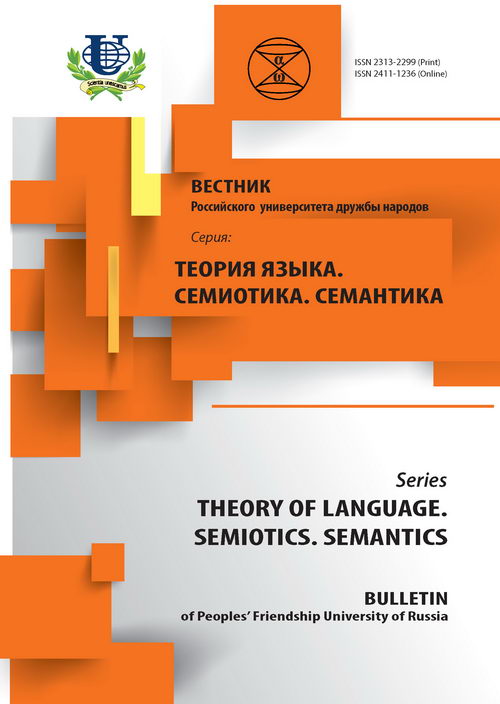On Some Pragmatic and Cognitive Theories Applicable to Literary Discourse
- Authors: Bednárová-Gibová K.1
-
Affiliations:
- Institute of British and American Studies
- Issue: No 4 (2015)
- Pages: 61-70
- Section: ARTICLES
- URL: https://journals.rudn.ru/semiotics-semantics/article/view/7558
- ID: 7558
Cite item
Full Text
Abstract
The aim of this paper is to to expatiate upon the significance of conversational maxim, frame and schema theories and their applicability to literary works written in the tradition of absurd drama. In this vein, a close collaboration between linguistics and literature studies is established. In the age of interdisciplinarity, this seems not only possible but also vital. The methodological approaches underlying a linguistic analysis of absurd drama will be presented. These comprise Grice’s theory of the Cooperative principle and maxims, frame theory by Pätzold, Minsky and Lakoff and schema theory by Short and Cook. The paper shows a possible application of the given linguistic concepts to selectedexcerpts from AlanAyckbourn’s play My Wonderful Day and signposts formation of linguistic elements symptomatic of the modern Theatre of the Absurd.
About the authors
Klaudia Bednárová-Gibová
Institute of British and American Studies
Email: klaudia.gibova@gmail.com
References
Supplementary files












